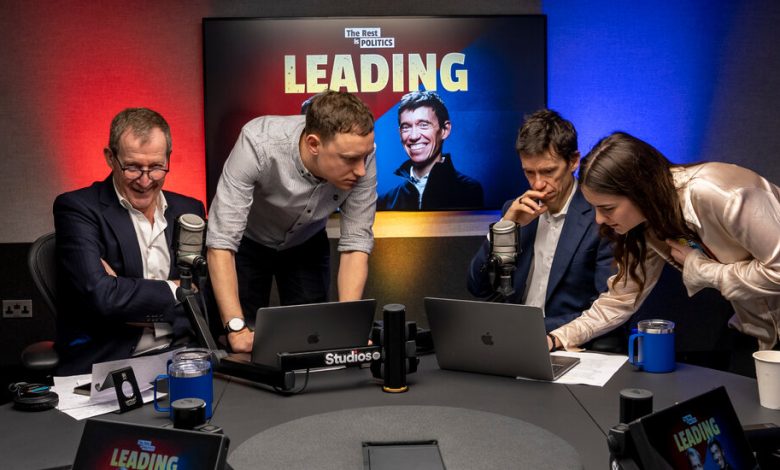What Comes After a Career in Politics? In Britain, a Podcast.

A week after Russia invaded Ukraine, in March 2022, a host of the British podcast “The Rest Is Politics” explained what it was like to be in a room with President Vladimir V. Putin.
Alastair Campbell, who worked as the director of communications and strategy in Tony Blair’s Labour government, said that when he first met Russia’s president in 1999, he was “almost timid, very slight, very small, quite quiet.” But Putin’s aggression increased over time, Campbell said on the podcast, and at a dinner in 2003, the president had hurled abuse at Blair. Putin didn’t say that the British prime minister was George W. Bush’s poodle, “but he wasn’t far-off,” Campbell recalled.
This discussion, which opened the show’s first episode, revealed a key appeal of “The Rest Is Politics”: its hosts’ political résumés. Campbell and his co-host Rory Stewart, a former Conservative lawmaker, draw on their time in government to explore the issues of the day under the unofficial banner of “disagreeing agreeably.”
The emphasis on civility and the show’s centrist leanings have made “The Rest Is Politics” one of the most popular podcasts in Britain over the last two years. In the glow of that success, other former politicians have followed suit, with podcasts that join forces from across the aisle at a time when many believe that politics in the country is overly polarized.
Jack Davenport, the managing director of Goalhanger, the production company behind “The Rest Is Politics,” said that “people are craving reasonable voices who clearly have thought deeply about these issues, and have the room to express those thoughts in a measured way.” This feels especially “refreshing to those of us used to doomscrolling Twitter,” he added.
